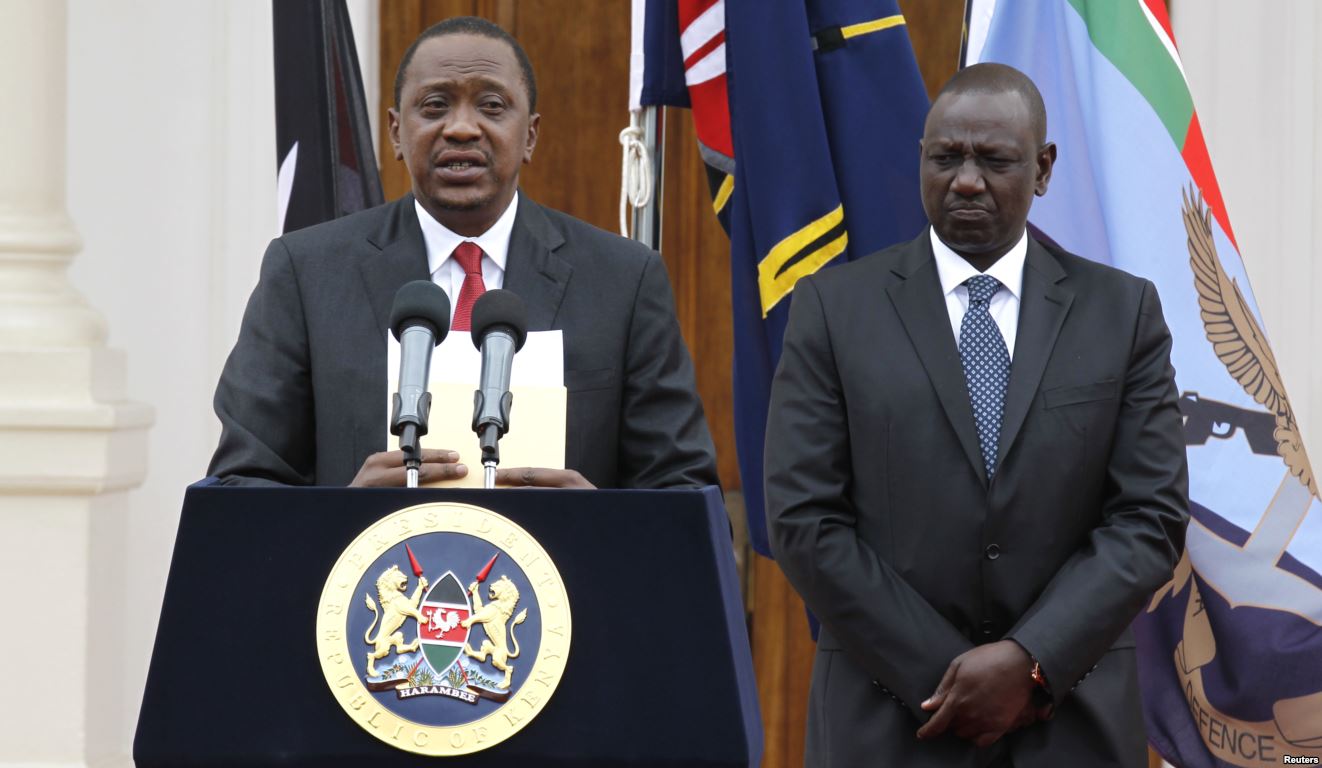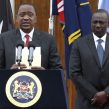
Islamist Radicalization: A New Challenge for Kenya
Publication: Terrorism Monitor Volume: 12 Issue: 23
By:

On November 27, the Kenyan government reopened four mosques in Mombasa, which it had shut down the previous week over fears that they were involved in the radicalization and recruitment of local youth for Somalia’s Islamist militant group, al-Shabaab. The reopened mosques were handed over to a group of Muslim elders for management, amid the uproar from local politicians and religious leaders that the government was restricting religious freedoms. Further underlining the threat to Kenya from militant Islamism, militants killed 36 non-Muslim quarry workers near Mandera on December 1 (Capital FM, December 2). Previously, on November 22, another massacre of 28 non-Muslim bus passengers had occurred near the town, with al-Shabaab saying it had carried out the killings in retaliation for the mosques’ closure (The Standard [Nairobi], November 22).
Growing Confrontation
Islamist radicalism is not new to Kenya. A Kenyan citizen was, for instance, involved in the 1998 U.S. Embassy bombings in Nairobi and Dar es Salaam. These coordinated bombings killed about 220 people and were the first suicide bombings by an East Africa al-Qaeda cell. Similarly, in al-Qaeda’s 2002 coordinated attacks on the Israeli-owned Paradise Hotel in Kikambala and a plane at the Mombasa airport, at least one Kenyan was involved (IRIN, May 6, 2013). More recently, in September 2013, al-Shabaab fighters carried out a deadly attack at the Westgate upscale shopping mall in the Westlands area of Nairobi. The assault, in which automatic weapons and grenades were used, left 67 people dead (BBC, September 21).
Traditionally, Kenyan Muslims, who make up 11 percent of the country’s 40 million people and are mainly Sunni, have followed moderate forms of Islam. However, factors such as political marginalization, poverty, unemployment and underdevelopment seem to have accelerated the radicalization of Muslim youth in recent years (IRIN, May 6, 2013). In particular, the Kenyan coastal region and the northern and eastern areas where the majority of Muslims reside have fewer schools, hospitals, and generally, investment in infrastructure is poor or non-existent. Generally, there is also a wide perception that Muslims are underrepresented politically, despite attempts to include them in government (Daily Nation [Nairobi], June 20). These factors have fueled resentment and oppositional activities among the Muslim population and pushed youth to join al-Shabaab. Building on these grievances, al-Shabaab has built a cross-border presence and clandestine support network among the Muslim population in northeastern Kenya as well as Nairobi and Mombasa and has been recruiting youth from these regions. Radicalization appeared to have gained additional momentum after Kenya sent troops to fight al-Shabaab in Somalia in October 2011.
In Mombasa itself, tensions have also been heightened by the deaths of leading extremist clerics. One of the most prominent was Shaykh Aboud Rogo Muhammad, who was shot dead in August 2012; he was the fifth local Muslim cleric to die under unclear circumstances. His death triggered violent protests in the coastal city, with two churches being looted. Rogo had been known for preaching radical sermons at the Masjid Musa Mosque (The Star [Nairobi], August 28, 2013).
There are also allegations that some Kenyans join al-Shabaab for financial reasons; it has been reported that the group pays recruits up to $500 a month, when they join training camps in Southern Somalia. This is much higher than entry level pay for a police constable and slightly above Kenya’s average salary, meaning such payments may be an important additional motivating fact for disenchanted and unemployed young Muslims (Business Daily [Nairobi], October 15; BBC, January 29).
Controversial Mosques
The Kenyan authorities’ recent closure of the controversial mosques in Mombasa did not come out of the blue. The scene of previous violent confrontation between police and Muslim youth, the mosques have been on security agencies’ radar for some time. Two months ago, the police warned that they would shut down the mosques if their preachers did not stop promoting Islamist ideologies that threatened to radicalize Muslim youths (The Standard [Nairobi], September 15). Local Muslim clerics had also warned for some time that the mosques were promoting dangerous ideologies (Daily Nation [Nairobi], February 9). Allegations included preachers telling the youths that international actions against militant Islamism abroad, for example, in Afghanistan and Iraq, were part of a global campaign against Islam (IRIN, May 6, 2013). Some local youths, allegedly radicalized at the mosques, have also been linked to recent grenade, gun and homemade bomb attacks in the country (The Star [Nairobi], September 17).
Government raids on the mosques also seemed to confirm local and official suspicions. On November 19, the security forces raided and closed down the Masjid Musa and Masjid Sakina mosques, which radical youth had violently taken over and renamed as Masjid Shaduda and Masjid Mujahideen respectively. In the operation, the police killed a grenade wielding youth and detained 250 other suspects. The police found weapons, including six grenades, several pistols, ammunitions, gunpowder, knives and machetes along with a flag similar to those often flown by al-Shabaab (Daily Nation [Nairobi], November 17). Also seized were audio and video recordings of the late Shaykh Aboud Rogo Muhammad, an Islamic extremist accused of arranging funding for al-Shabaab. In addition, in raids on the Swafaa and Minaa Mosques on November 19, the police seized grenades, ammunition and petrol bombs. The operation also netted 110 youth, who were allegedly receiving jihadist instruction inside the mosques (The Standard [Nairobi], November 20). Reopening the mosques, government warned that it would not waver in repeating the action if the preachers continued on the same path (People Daily [Nairobi], November 28). It is unlikely, however, that this will be the last time that Mombasa mosques are implicated in extremist activities, especially given that many of the local causes of Islamist radicalization are rooted in economic, social and political issues which only a long-term strategy would be able to resolve.
Sunguta West is an independent journalist based in Nairobi, Kenya. He writes about politics, religion, security and environment, among other issues.





